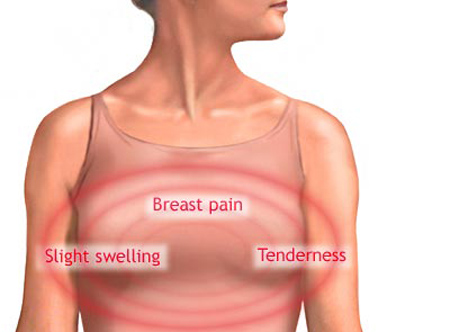Oophorectomy associated with decrease in breast cancer death in women with cancer, BRCA1 mutation
Removal of the ovaries, a procedure known as an oophorectomy, was associated with a 62 percent reduction in breast cancer death in women diagnosed with breast cancer and carrying a BRCA1 gene mutation, according to an article published online by JAMA Oncology.
Women who carry a germline mutation in either the BRCA1 or BRCA2 gene face a lifetime risk of breast cancer of up to 70 percent. Once they are diagnosed with breast cancer, they face high risks of both second primary breast and ovarian cancers. Other studies of BRCA gene mutation carriers have reported reduced mortality associated with oophorectomy for women with a history of breast cancer, according to the study background.
Steven A. Narod, M.D., and Kelly Metcalfe, Ph.D., of the Women’s College Research Institute, Toronto, Canada, and coauthors sought to confirm these earlier observations in a group of women with BRCA1 and BRCA2 gene mutations and early-stage breast cancer. Their study included 676 women, of whom 345 underwent oophorectomy after being diagnosed with breast cancer, while 331 women retained both ovaries.
The study found 20-year survival for the entire group was 77.4 percent. In the entire group, there was a 56 percent reduction in breast cancer death associated with oophorectomy. Undergoing an oophorectomy was associated with a significant reduction (62 percent) in breast cancer death in women with a BRCA1 mutation but not in women with a BRCA2 mutation because the 43 percent reduction authors found was not statistically significant.
In addition there were nine deaths from ovarian cancer in the group of women who did not have oophorectomies. The authors found a 65 percent reduction in all-cause mortality associated with oophorectomy in their analysis.
According to the study results, oophorectomies were performed an average of six years after breast cancer diagnosis. For the 70 BRCA1 carriers for whom the oophorectomy was performed within two years of breast cancer diagnosis, there was a 73 percent reduction in death compared with women with a BRCA1 mutation who never underwent oophorectomy. The authors note the protective effect of oophorectomy on deaths from breast cancer was apparent immediately after diagnosis and lasted for 15 years.
 “It is important that follow-up studies be performed on women who undergo oophorectomy as part of their initial treatment, in particular, those women who undergo oophorectomy in the first year after diagnosis. It is also important that our observations be confirmed in other study populations. Further data are needed, in particular for BRCA2 carriers in order to confirm the benefit of oophorectomy in this population,” article concludes.
“It is important that follow-up studies be performed on women who undergo oophorectomy as part of their initial treatment, in particular, those women who undergo oophorectomy in the first year after diagnosis. It is also important that our observations be confirmed in other study populations. Further data are needed, in particular for BRCA2 carriers in order to confirm the benefit of oophorectomy in this population,” article concludes.
Editor’s Note: Adjuvant Oophorectomy in Treatment of Early-Stage BRCA Mutation-Positive Breast Cancer
In a related editor’s note, Mary L. Disis, M.D., editor-in-chief of JAMA Oncology, writes: “The results provide a validation of the role of oophorectomy in conveying both a disease-free and overall survival benefit for BRCA1 mutation carriers. Oophorectomy after the primary diagnosis of breast cancer significantly reduced breast cancer-specific mortality in women with BRCA1 mutations but not in BRCA2 mutation carriers. In the entire group, oophorectomy was particularly effective for survival benefit in women with estrogen receptor-negative breast cancer. ... The data reported here are compelling and suggest that the potential of oophorectomy should become part of the treatment discussion at the time of diagnosis for BRCA mutation carriers with early-stage breast cancers.”
###
(JAMA Oncol. Published online April 16, 2015. doi:10.1001/jamaoncol.2015.0658. Available pre-embargo to the media at http://media.jamanetwork.com.)
Editor’s Note: This research was funded by the Canadian Breast Cancer Foundation and an author made a funding/support disclosure. Please see the article for additional information, including other authors, author contributions and affiliations, financial disclosures, funding and support, etc.
Media Advisory: To contact authors Kelly Metcalfe, Ph.D., and Steven A. Narod, M.D., call Rebecca Cheung at 416-323-6400 ext.3210 or email .(JavaScript must be enabled to view this email address). To contact Editor’s Note author Mary L. Disis, M.D., call 312-464-5262 or email .(JavaScript must be enabled to view this email address).
###
Rebecca Cheung
.(JavaScript must be enabled to view this email address)
416-323-6400 x3210
###
The JAMA Network Journals
Journal
JAMA Oncology